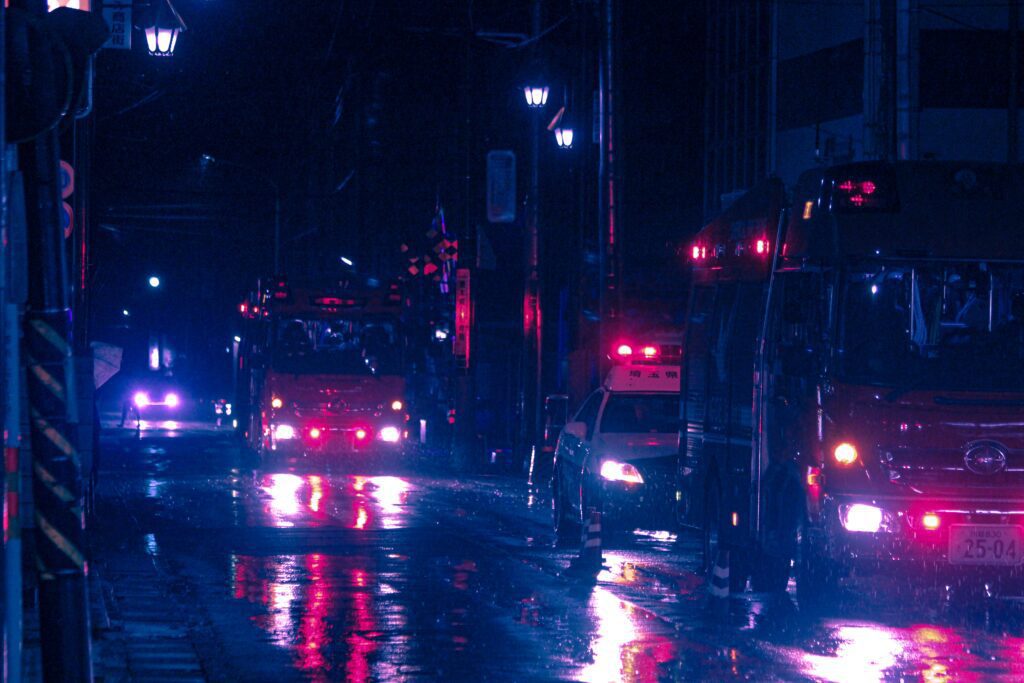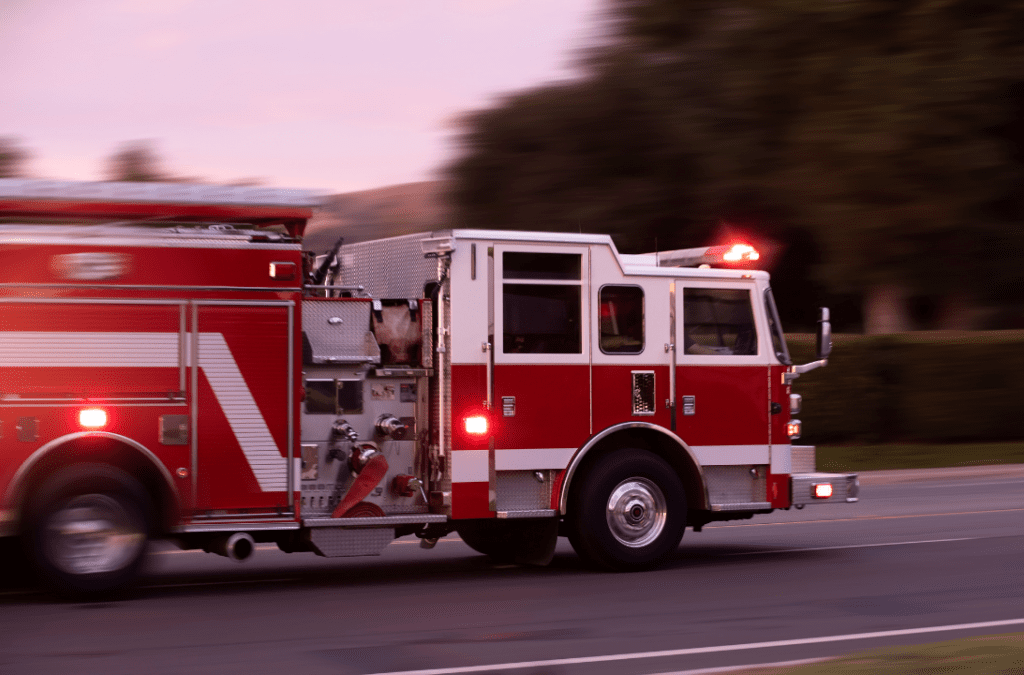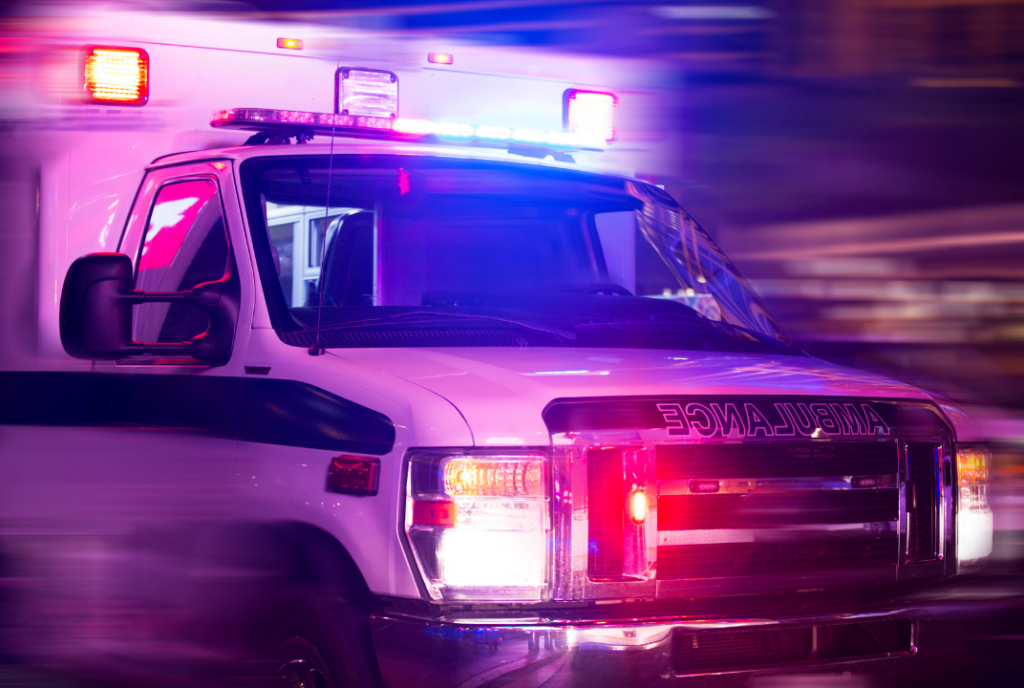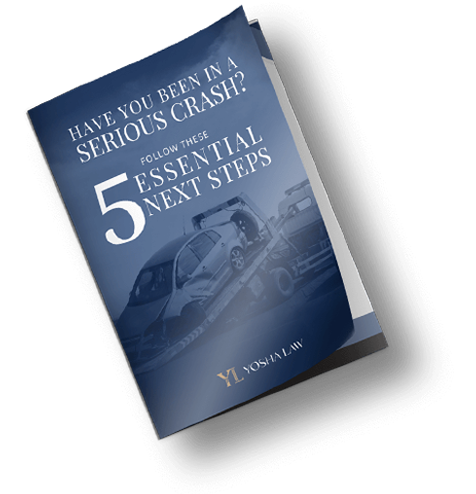First responders perform vital services for all of us—no one would dispute that. But if you’ve been in an accident involving a first responder, you may rightly wonder if they have any liability.
First responders need to get to the site of an emergency quickly—it can be a matter of life or death. However, because emergency vehicles speed through crowded highways and streets, there can be unfortunate incidents involving other vehicles, property, or pedestrians.
In some cases, the drivers or their parent company or organization may bear some liability. Here’s what you should know.
Emergency Vehicle Crashes Affect Everyone
Statistics from the National Safety Council show that In 2020:
- 180 people died in crashes involving emergency vehicles. The majority of these deaths were occupants of non-emergency vehicles (56%).
- Deaths among pedestrians accounted for another 25%, while emergency vehicle drivers represented 11% and emergency vehicle passengers accounted for about 5% of deaths.
Understanding Indiana’s Move-Over laws
Indiana’s Move Over laws are intended to protect workers performing their necessary duties on Indiana’s roadways by requiring certain actions of motorists. In other words, these are statutes that explain what your responsibility is on the road.
The laws state that as soon as drivers see flashing emergency lights, they should reduce their speed and increase the distance from the vehicle in front of them. This increases visibility and the ability to safely react to whatever situation is ahead.
On multiple-lane highways, change lanes away from the emergency vehicle if it is safe to do so. This provides a safer space for workers and also helps approaching traffic to better see the emergency vehicle.
If it is not safe to change lanes, drivers should reduce their speed at least 10 mph under the posted speed limit, move as far away as possible within their lane, and proceed with caution.
Motorists should not stop in the road because this can cause a chain reaction of rear-end collisions with other vehicles. MOVE OVER and/or SLOW DOWN.
As you are driving, look well ahead and watch for these vehicles:
- Fire Department vehicles
- Police Department vehicles
- Ambulances
- Emergency vehicles operate by or for hospitals
- Vehicles designated as emergency vehicles by Indiana Department of Transportation
- Emergency medical vehicles that are not ambulance but are used for extrication and rescue
- Department of Correction vehicles that are designated emergency vehicles when responding to an emergency
Indiana Emergency Vehicle Light Statutes
We all know emergency vehicles can speed and run red lights, but when and how they can disregard traffic rules is covered by state law. Indiana law allows first responders to operate outside of the traffic laws if they obey the following conditions:
Police, Marshall, and Sheriff Vehicles
While the police vehicle or law enforcement vehicle is operating as an authorized emergency vehicle with its emergency lights illuminated, it may be used by emergency personnel to disregard the posted speed limit or any other traffic law. This is to allow emergency responders to travel to an emergency scene swiftly to potentially save lives. They must do so with due regard to the safety of all traffic and motor vehicles on the road or highway to avoid a car accident. An audible signal is not required when a police vehicle is traveling to an emergency, as it might alert a suspect of their arrival.
Fire Trucks and Fire Chief SUVs
When a fire truck or fire vehicle owned by the fire department is operating as an authorized emergency vehicle, has its emergency lights illuminated, and is using its audible signal such as a bell, siren, or whistle, it may be used by emergency personnel to disregard the posted speed limit or any other traffic law. This is so that they can arrive at an emergency scene swiftly to put out a fire and potentially save lives. When disregarding traffic laws, emergency personnel must do so with due regard for the safety of all traffic and motor vehicles on the road or highway.
Volunteer Firefighter Vehicles
If operating as an authorized emergency vehicle, a volunteer fire vehicle may disregard the posted speed limit or any other traffic law. This must be done while illuminating emergency vehicle lights and operating an audible signal such as a bell, siren, or whistle. Emergency personnel must operate the volunteer fire vehicle with due regard to the safety of all traffic while disregarding traffic laws.
Ambulance and EMT Vehicles
When operating as an authorized emergency vehicle, an ambulance may disregard the posted speed limit and any other traffic law while its emergency lights are illuminated. They must do so with due regard to the safety of all traffic and every motor vehicle on the road or highway to prevent a car accident.
Steps to take if you have been involved in a crash involving a first-responder vehicle
If you get into an accident with an emergency vehicle, your first priorities are safety and documentation:
- Get as much pertinent information as you can on the vehicles and drivers involved. Take photos.
- If you are injured, call for help and get emergency treatment.
- Notify your insurance right away about the accident.
Do I have a right to file a lawsuit against first responders?
First responders and the cities or towns that employ them are generally immune from lawsuits if someone is hurt or killed in a vehicle accident.
For instance, if you are injured in a crash with an emergency or utility vehicle that is pulled off the road, you would likely be considered at fault. Thus you would not have grounds to file a personal injury lawsuit.
But there are situations in which a personal injury lawsuit might be allowed.
You may file a lawsuit if first responders cause a serious injury or wrongful death. For example, legal action may be warranted in cases involving serious injury or wrongful death claims in Gary or anywhere in Indiana. In such cases, consulting with an attorney with experience handling these complex and sensitive cases is essential to ensure justice is served. Also, emergency medical technicians or paramedics responding to a call may face allegations of medical malpractice.
There are cases in which the driver of an emergency vehicle can be found negligent in a car accident. Examples of negligent actions are:
- Failing to use caution in heavy traffic or through intersections
- Speeding and ignoring traffic signs without using flashing lights and sirens
- Making a turn at high speed
- Not stopping when pedestrians are in a walkway
- Driving under the influence of alcohol or drugs
- Driving while extremely fatigued or distracted
An experienced attorney will know the lay of the land and will be able to discuss the chances of you winning a case involving a first-responder accident.
We are all grateful for the work police officers, firefighters, and EMTs do for our community, but that doesn’t mean that drivers behaving recklessly causing injury or in some cases, death, should not be held accountable for damages they cause.
Let Yosha Law determine whether you have a case
If you or a family member were seriously injured in an accident involving an emergency vehicle, it’s possible that you have a claim for damages against the driver or the municipality that employs them. Contact our expert legal team in Indianapolis to find out if we can help you get the compensation you deserve.









